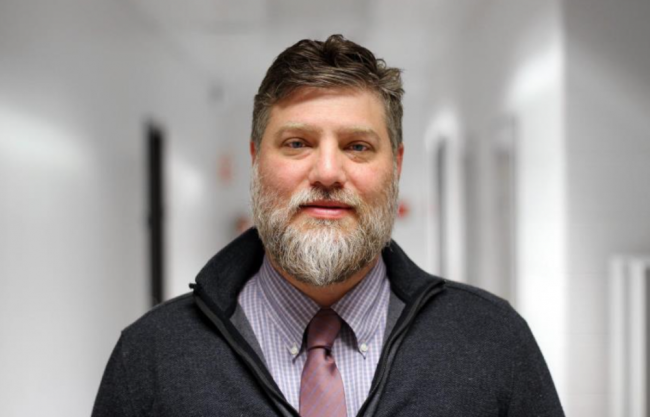MECHANICS AND MATERIAL STRUCTURE AT THE MESOSCALE: NEW APPROACHES TO LONGSTANDING CHALLENGES
Events | Mechanical Engineering
MECHANICS AND MATERIAL STRUCTURE AT THE MESOSCALE: NEW APPROACHES TO LONGSTANDING CHALLENGES
October 12, 2020 8:30 AM

Speaker
STEPHEN R NIEZGODA Department of Materials Science and Engineering, Department of Mechanical and Aerospace Engineering, The Ohio State University
Location
Via Zoom
Type
Seminar
ABSTRACT Defects, including dislocations, internal interfaces, and damage are often the critical structural features which control performance in structural material. Of particular interest for mechanical properties is the hierarchical structure at the mesoscale, which spans from dislocation interactions with fine precipitates (nanometers) to polycrystalline aggregates (mm-cm). Through advances in characterization, theory, and simulation, the behavior and physics of individual defects and the interactions of small numbers of defects at the atomic or nanoscale is reasonably well understood. However, the understanding of the collective behavior of defects and structural inhomogeneity at the mesoscale remains a significant challenge and that without new approaches to understand mesoscale structural heterogeneity ``translating atomic and nanoscale phenomena into macroscopic materials solutions for society and the economy will be inefficient and slow.''
The current approach for qualification of new materials and manufacturing processes is both expensive and time consuming. It involves an iterative cycle of prototype construction and testing that requires years of expensive design evaluation. Further, manufacturing is currently seeing rapid developments that have great potential for spurring advances, such as additive manufacturing, but the current qualification process inhibits the agility of manufacturers and designers to make the best use of these emerging technologies. One strategy for reducing the burden of inserting new materials and processes is the adoption of Integrated Computational Materials Engineering (ICME), which is predicated on replacing expensive experimentation with modeling and simulation. The critical question with ICME adoption is “How do we develop sufficient statistical confidence in a simulation based design with only limited experimental validation?”
In this talk these two ideas are linked, and the opportunities and challenges of integrating mesoscale modeling and simulation into ICME are explored. Specifically recent advances from Prof. Niezgoda’s research group related to i) Physics-based microstructure and mesoscale constitutive theory, ii) Computationally efficient numerical solvers for meso-mechanical constitutive models, iii) Rigorous methodologies for model verification and validation (V\&V) coupled with uncertainty quantification (UQ), and iv) Advanced data analytics & machine learning will be presented and put in context of mesoscale mechanics.
Biosketch: Stephen Niezgoda is an Associate Professor in the departments of Materials Science & Engineering and in Mechanical & Aerospace Engineering at OSU. Prior to his engineering studies Dr. Niezgoda worked as an industrial mechanic and machinist, and as an F.A.A. certified aircraft mechanic (A&P ratings). He obtained his Ph.D. from Drexel University in 2010 where his research was focused on Microstructure Sensitive Design. For his thesis work, he received the Drexel Thesis Award “Most Promise to Enhance Drexel’s Reputation in the Mathematical and Physical Science.” Niezgoda then went on to postdoctoral research appointments at Los Alamos National Laboratory in the Materials Science in Radiation and Dynamic Extremes group and at the Lujan Neutron Scattering Center (LANSCE). Stephen R. Niezgoda is the leader of Micro- & Mesoscale Mechanics and Structures Laboratory at The Ohio State University. His research interests include micromechanical modeling and simulation, constitutive model development, crystal plasticity, experiment and simulation co-design, computational materials design tools and data sciences.